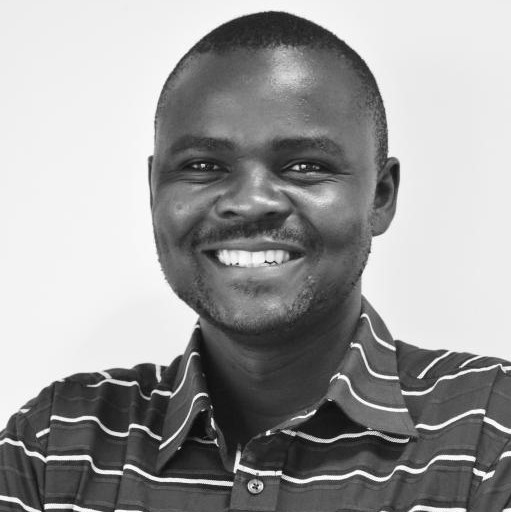

Dr
Gyaviira Nkurunungi
Current Organisation
MRC/UVRI and LSHTM Uganda Research Unit
Current Job Title
Postdoctoral research fellow
Biography
Publications
Introduction
Vaccine-specific immune responses vary between populations and are often impaired in low income, rural settings. Drivers of these differences are not fully elucidated, hampering identification of strategies for optimising vaccine effectiveness. We hypothesise that urban-rural (and regional and international) differences in vaccine responses are mediated to an important extent by differential exposure to chronic infections, particularly parasitic infections.
Methods and analysis
Three related trials sharing core elements of study design and procedures (allowing comparison of outcomes across the trials) will test the effects of (1) individually randomised intervention against schistosomiasis (trial A) and malaria (trial B), and (2) Bacillus Calmette-Guérin (BCG) revaccination (trial C), on a common set of vaccine responses. We will enrol adolescents from Ugandan schools in rural high-schistosomiasis (trial A) and rural high-malaria (trial B) settings and from an established urban birth cohort (trial C). All participants will receive BCG on day '0'; yellow fever, oral typhoid and human papilloma virus (HPV) vaccines at week 4; and HPV and tetanus/diphtheria booster vaccine at week 28. Primary outcomes are BCG-specific IFN-γ responses (8 weeks after BCG) and for other vaccines, antibody responses to key vaccine antigens at 4 weeks after immunisation. Secondary analyses will determine effects of interventions on correlates of protective immunity, vaccine response waning, priming versus boosting immunisations, and parasite infection status and intensity. Overarching analyses will compare outcomes between the three trial settings. Sample archives will offer opportunities for exploratory evaluation of the role of immunological and 'trans-kingdom' mediators in parasite modulation of vaccine-specific responses.
Ethics and dissemination
Ethics approval has been obtained from relevant Ugandan and UK ethics committees. Results will be shared with Uganda Ministry of Health, relevant district councils, community leaders and study participants. Further dissemination will be done through conference proceedings and publications.
Trial registration numbers
ISRCTN60517191, ISRCTN62041885, ISRCTN10482904.
Introduction
There is evidence that BCG immunisation may protect against unrelated infectious illnesses. This has led to the postulation that administering BCG before unrelated vaccines may enhance responses to these vaccines. This might also model effects of BCG on unrelated infections.
Methods and analysis
To test this hypothesis, we have designed a randomised controlled trial of BCG versus no BCG immunisation to determine the effect of BCG on subsequent unrelated vaccines, among 300 adolescents (aged 13-17 years) from a Ugandan birth cohort. Our schedule will comprise three main immunisation days (week 0, week 4 and week 28): BCG (or no BCG) revaccination at week 0; yellow fever (YF-17D), oral typhoid (Ty21a) and human papillomavirus (HPV) prime at week 4; and HPV boost and tetanus/diphtheria (Td) boost at week 28. Primary outcomes are anti-YF-17D neutralising antibody titres,
Salmonella typhi
lipopolysaccharide-specific IgG concentration, IgG specific for L1-proteins of HPV-16/HPV-18 and tetanus and diphtheria toxoid-specific IgG concentration, all assessed at 4 weeks after immunisation with YF, Ty21a, HPV and Td, respectively. Secondary analyses will determine effects on correlates of protective immunity (where recognised correlates exist), on vaccine response waning and on whether there are differential effects on priming versus boosting immunisations. We will also conduct exploratory immunology assays among subsets of participants to further characterise effects of BCG revaccination on vaccine responses. Further analyses will assess which life course exposures influence vaccine responses in adolescence.
Ethics and dissemination
Ethics approval has been obtained from relevant Ugandan and UK ethics committees. Results will be shared with Uganda Ministry of Health, relevant district councils, community leaders and study participants. Further dissemination will be done through conference proceedings and publications.
Trial registration number
ISRCTN10482904.
Project Title
How does exposure to helminths alter vaccine responses: employing cytometry by time-of-flight (CyToF) technology for high-resolution immunophenotyping of cellular pathways underpinning helminth-induced immunomodulation
EDCTP Project
TMA2019PF-2707
EDCTP Program
EDCTP2
EDCTP Project Call
EDCTP-AREF Preparatory Fellowships (PF)
Host Organisation
| Department | Institution | Country |
|---|---|---|
| Uganda National Health Research Organisation (UNHRO) | Uganda National Health Research Organisation (UNHRO) | UG |
Project Objectives
Vaccines are a key public health tool but immune responses to several licensed and investigational vaccines are impaired in tropical low-income countries (LICs) compared to temperate high-income countries and in rural, compared to urban, LIC settings. Drivers of these population differences have not been determined. Pre-immunisation immunological profile impacts vaccine responses; however, factors influencing this profile in the tropics are poorly understood. The proposed work addresses the hypothesis that repeated exposure to chronic parasitic infections modulates the host pre-immunisation immunological response, consequently impairing vaccine-specific responses.
Study Design
The fellowship work will use peripheral blood mononuclear cells from a Ugandan clinical trial (ISRCTN60517191) that is investigating effects of intensive treatment of Schistosoma mansoni on vaccine responses, and from a comparison study in a lower helminth exposure, urban setting. The fellowship objectives are to Undertake hands-on laboratory training in mass cytometry (cytometry by time-of-flight; CyToF) technology at Leiden University Medical Center (LUMC; The Netherlands) in order to investigate pre-immunisation immunological parameters and cell populations that link helminth exposure to vaccine-specific immune responses. CyToF is an advanced system-wide approach that enables simultaneous detection of over 40 heavy metal-labelled immune markers at single-cell level, providing an opportunity to study heterogeneity and function of immune cells with unprecedented resolution. Undertake training in dimensionality reduction-based techniques for the analysis of CyToF and other complex multiparameter immunological data. CyToF generates large, non-linear data of high-dimensionality, posing a substantial challenge for analysis and presentation. The fellowship placement will provide training in machine learning algorithms using interactive visual analysis pipelines in place at LUMC. Algorithms such as T-distributed Stochastic Neighbor Embedding (tSNE) and Hierarchical SNE (HSNE) will be used. Generate pilot data for a follow-on international fellowship application on the impact of differential parasite exposure on immunological predictors of vaccine response. CyToF results from the fellowship will identify, in unpredented detail, cell subsets and pathways altered by helminth exposure and associated with vaccine response, generating hypotheses for testing in the follow-on study.
Project Summary
I will use knowledge and analysis skills obtained to build capacity in Uganda through peer trainings and seminars. The fellowship will augment collaboration with world leaders in immuno-parasitology at LUMC, and enhance the crucial mass of immunology expertise in sub-Saharan Africa. Together, the fellowship and follow-on studies will advance understanding of drivers of population differences in vaccine-specific responses, and inform both public health and biological strategies for maximising effectiveness of vaccines in the tropics.

.jpg)